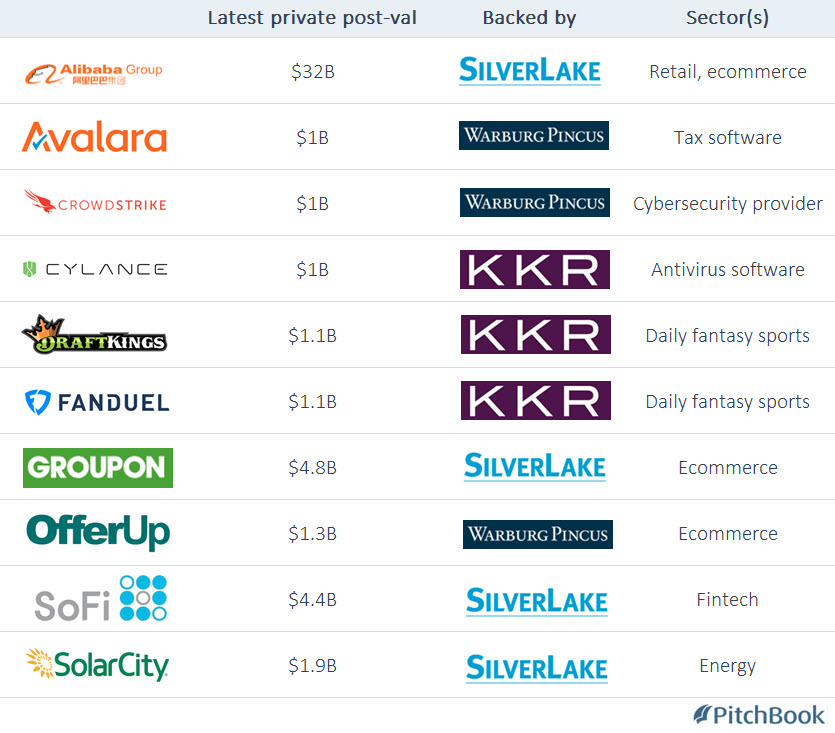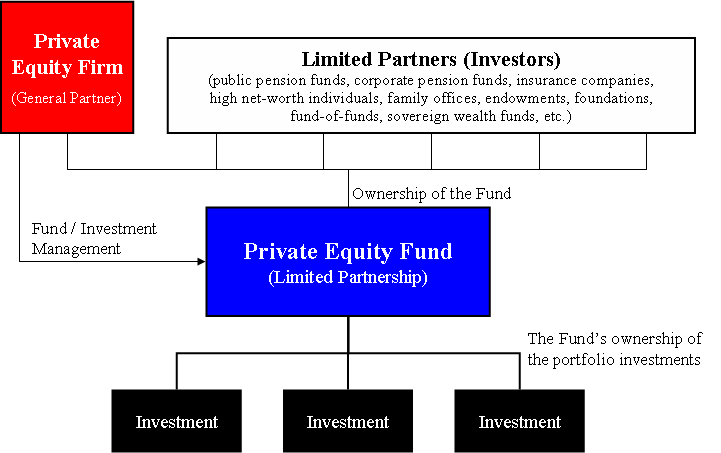Permira, one of the biggest and most successful European private equity funds, made more than 30 significant acquisitions and more than 20 disposals of independent businesses from 2001 to 2006. Few public companies develop this depth of experience in purchasing, changing, and selling. As private equity has gone from strength to strength, public companies have moved their attention away from value-creation acquisitions of the sort private equity makes.
Conglomerates that buy unrelated organisations with potential for substantial efficiency improvement, as ITT and Hanson did, have fallen out of fashion. As an outcome, private equity companies have faced couple of competitors for acquisitions in their sweet area. Given the success of private equity, it is time for public companies to think about whether they may contend more straight in this space.
As a result, private equity companies have actually dealt with few rivals in their sweet area. We see two choices. The first is to adopt the buy-to-sell model. The 2nd is to take a more flexible approach to the ownership of companies, in which a willingness to hold on to an acquisition for the long term is balanced by a commitment to offer as quickly as corporate management feels that it can no longer include more worth.

Specific funds can have their own timelines, investment goals, and management viewpoints that separate them from other funds held within the exact same, overarching management firm. Successful private equity companies will raise many funds over their life time, and as firms grow in size and complexity, their funds can grow in frequency, scale and even specificity. To find out more about fund managers and - research the websites and -.
In 15 years of managing properties and backing a number of entrepreneurs and financiers,Tysdal’s companies managed or co-managed , non-discretionary, around $1.7 billion in assets for ultra-wealthy families in industries such as gas, healthcare and oil , real estate, sports and home entertainment, specialty financing, spirits, technology, durable goods, water, and services business. His group advised customers to invest in nearly 100 entrepreneurial companies, funds, personal lending offers, and real estate. Ty’s performance history with the private equity capital he deployed under the first billionaire customer was over 100% yearly returns. And that was throughout the Great Recession of 2008-2010 which was long after the Carter administration. He has created numerous millions in wealth for customers. Offered his lessons from working with a handful of the recognized, highly sophisticated people who might not appear to be pleased on the upside or comprehend the prospective drawback of a offer, he is back to work exclusively with business owners to help them sell their business.
One is the obstacle of revamping a corporate culture that has a buy-to-keep strategy embedded in it. That needs a company not just to shed deeply held beliefs about the stability of a business portfolio but also to develop brand-new resources and possibly even dramatically change its abilities and structures.
Understanding Private Equity (Pe) – Investopedia
Whereas private equity funds, organized as private partnerships, pay no corporate tax on capital gains from sales of services, public business are taxed on such gains at the typical business rate. This corporate tax distinction is not balanced out by lower personal taxes for public company investors. Higher taxes greatly reduce the appearance of public business as a lorry for purchasing companies and selling them after increasing their value (harvard business school).
This much enhances European public business’ tax position for purchasing to sell – prosecutors mislead money. (Note that 2 tax concerns have been the topic of public examination in the United States. The firstwhether publicly traded private equity management firms need to be dealt with like private partnerships or like public companies for tax purposesis carefully associated to the concern we raise.
Certainly, two longtime gamers in mid-market buyouts (those valued between $30 million and $1 billion) are public companies: American Capital Methods, which had a recent market capitalization of about $7 billion, and the UK-based 3i, whose market cap has to do with $10 billion. Both companies discovered ways to prevent the corporate capital gains tax (the UK removed the tax only in 2002) by embracing uncommon organizational structuresa “organisation advancement business” in the case of American Capital; an “investment trust” when it comes to 3i.
Those restrictions make such structures unsightly as automobiles for taking on private equity, at least for big buyouts in the United States. With the elimination of the tax disincentives across Europe, a couple of new publicly quoted buyout gamers have emerged. The largest are two French business, Wendel and Eurazeo. Both have actually achieved strong returns on their buyout investments.
How Does Private Equity Create Value? – Yale Insights
( In the United States, where private companies can elect, like private partnerships, not to be based on corporate tax, Platinum Equity has ended up being one of the fastest-growing private companies in the country by contending to buy out subsidiaries of public business.) With the removal of the tax disincentives across Europe, a couple of new publicly quoted buyout players have actually emerged.
Private equity funds are illiquid and are risky due to the fact that of their high use of debt; additionally, once investors have turned their money over to the fund, they have no say in how it’s handled. In compensation for these terms, investors should anticipate a high rate of return – cobalt sports capital. Nevertheless, though some private equity firms have actually achieved exceptional returns for their investors, over the long term the average net return fund investors have actually made on U.S.
Private equity fund managers, meanwhile, have actually earned extremely appealing benefits, with little up-front financial investment. As payment for taking the effort in raising cash, managing financial investments, and marketing their benefits, they have actually structured agreements so that a large portion of the gross returnsaround 30%, after adding management and other feesflows to them.
Public business pursuing a buy-to-sell method, which are traded daily on the stock market and answerable to stockholders, might offer a better offer for investors (fund manager partner). From where might a substantial variety of openly traded rivals to private equity emerge? Even if they value the destinations of the private equity technique in concept, few of today’s large public industrial or service companies are likely to embrace it.
How To Answer “Why Private Equity” For Interviews – 10x Ebitda

Also, couple of business managers would slip quickly into a more investment-management-oriented function. Private equity partners usually are former investment lenders and like to trade. Most top corporate supervisors are former organisation system heads and like to manage (indictment obtained foxchannel). Public monetary firms, however, may discover it much easier to follow a buy-to-sell method.


More private equity firms may decide, as U.S.-based Ripplewood did with the preliminary public offering of RHJ International on the Brussels stock market, to float an entire financial investment portfolio on the public markets. More skilled financial investment banks may follow the lead of Macquarie Bank, which created Macquarie Capital Alliance Group, a company traded on the Australian Securities Exchange that concentrates on buy-to-sell opportunities.
( These examples are to be differentiated from the private equity firm Blackstone’s preliminary public offering of the firm that manages the Blackstone funds, but not the funds themselves.) A method of flexible ownership might have larger attract big industrial and service companies than buying to offer – securities fraud theft. Under such an approach, a business holds on to businesses for as long as it can include considerable worth by improving their performance and sustaining development.
A choice to offer or spin off a business is seen as the culmination of an effective transformation, not the outcome of some previous strategic mistake. At the very same time, the company is free to hang on to an obtained business, providing it a potential benefit over private equity companies, which in some cases must pass up rewards they ‘d understand by hanging on to investments over a longer period.
Private Equity: Overview, Guide, Jobs, And Recruiting

Flexible ownership can be expected to appeal the most to companies with a portfolio of companies that don’t share many clients or procedures. Take General Electric. The company has actually demonstrated over the years that business management can indeed include worth to a varied set of services. counts securities fraud. GE’s business center helps construct basic management abilities (such as cost discipline and quality focus) throughout its services and ensures that broad patterns (such as offshoring to India and the addition of service offerings in producing companies) are effectively exploited by them all.
Indeed, with its legendary management abilities, GE is most likely better equipped to correct functional underperformance than private equity firms are – tens millions dollars. To recognize the benefits of versatile ownership for its investors, though, GE would need to be alert about the threat of keeping companies after corporate management could no longer contribute any substantial worth.